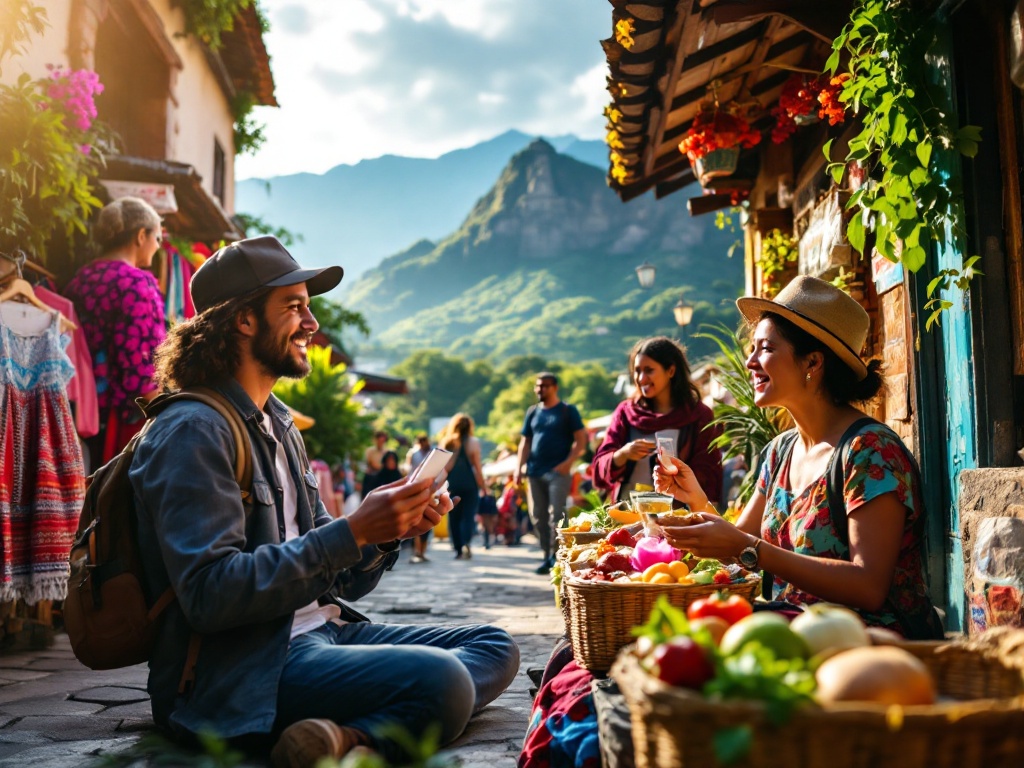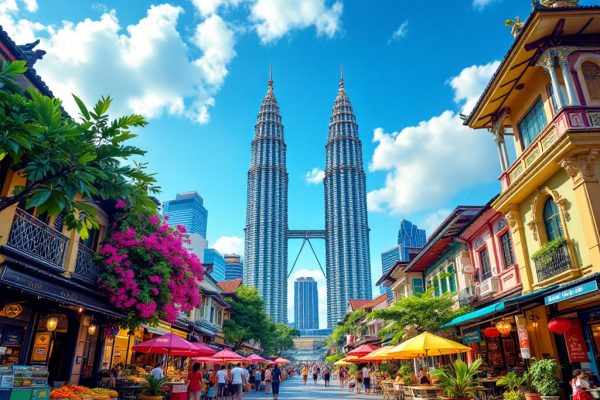Trip to Guatemala: Travel Advice
Dreaming of exploring the vibrant culture and stunning landscapes of Guatemala? U.S. citizens can enjoy visa-free travel for up to 90 days with just a valid passport! Learn how to complete the Guatemalan immigration form and discover essential health advice, including recommended vaccinations and food safety tips. We’ll also cover vital safety precautions, transportation advice, and emergency contact information to ensure a smooth and secure trip. Plan your Guatemalan adventure with confidence – read on to prepare for an unforgettable experience!
Important information

- U.S. citizens can visit Guatemala for up to 90 days with a valid passport and do not need a visa.
- Recommended vaccinations include Hepatitis A and typhoid, but consult your doctor for personalized advice as you might need others like Hepatitis B.
- Exercise caution, especially in areas like San Marcos, Huehuetenango, and Zone 18 of Guatemala City due to high crime rates. Use safe transportation, avoid walking alone at night, and do not resist robbers.
- Consume bottled water and well-cooked food from reputable establishments to avoid sickness. Take precautions against mosquito-borne illnesses like malaria.
- In emergencies, contact the U.S. Embassy at +(502) 2326-4000 or ACSGuatemala@state.gov. For local assistance, dial 110 (police), 122 (ambulance), or 123 (fire).
Entry Requirements for a Trip to Guatemala
U.S. citizens can travel to Guatemala with a valid U.S. passport for stays of up to 90 days. A visa is not required for these shorter trips, allowing for a hassle-free visit of up to three months.
U.S. Passport and Visa Requirements
U.S. citizens can visit Guatemala for up to 90 days with just a valid passport—no visa required.
Filling Out the Guatemalan Immigration Form
Accurately complete the immigration form to enter Guatemala.
Have your passport and personal details handy.
Indicate your travel purpose and the address where you’ll be staying.
Specify your intended departure date.
Health and Vaccination Advice
Planning a trip to Guatemala? Here’s some important health information to consider:
Measles
If you are not vaccinated against measles, you should be. Consult your doctor for the recommended vaccination.
Malaria
Malaria is a risk in some areas of Guatemala. Discuss antimalarial medication with your doctor as a preventative measure.
Recommended Vaccinations and Health Risks
Planning a trip to Guatemala? Safeguard your health by getting recommended vaccines, such as those for Hepatitis A and typhoid. Consult your doctor for personalized advice, as you might need additional vaccines like Hepatitis B, depending on your health status and specific itinerary. Be mindful of health risks, including traveler’s diarrhea and mosquito-borne illnesses, and take necessary precautions.
Avoiding Contaminated Water and Food
Drink bottled water. Avoid tap water and ice.
Choose reputable restaurants known for good hygiene. Eat thoroughly cooked meals.
Avoid raw or undercooked meat, seafood, and eggs.
Wash fruits and vegetables with purified water before eating them.
Safety and Security in Guatemala
Research your destination thoroughly. Crime, including gang activity, robberies, carjackings, and drug trafficking, is a concern in Guatemala, and tourists can be targets. Understanding the specific risks of your chosen area is crucial for your safety.
Prioritize safe transportation. Use registered taxis or reputable ride-hailing apps with established safety records. Avoid unmarked vehicles. Pre-booking transportation through hotels or tour operators adds an extra layer of security. Always verify the driver’s identity before entering a vehicle.
Exercise caution in cities. Be particularly vigilant after dark. Avoid displaying expensive jewelry or electronics, and stay aware of your surroundings. If confronted by a robber, do not resist.
Avoid walking alone at night. This is especially important in known high-risk areas. If you must walk at night, do so in well-lit and populated areas.
Keep emergency numbers accessible. Have local emergency numbers and your embassy or consulate contact information readily available.
Crime and Safety Precautions for Tourists
Guatemala has some high-crime areas where caution is advised. San Marcos, Huehuetenango, and Zone 18 of Guatemala City are particularly dangerous. Travelers should be especially vigilant in these locations. Exercise increased caution in these areas due to high crime rates:
- San Marcos,
- Huehuetenango,
- Zone 18 of Guatemala City.
Using Trusted Transportation Services
Prioritize safety by using reliable transportation options like Uber or taxis arranged through your hotel. Avoid unofficial public transit to ensure a secure and worry-free trip.
Transportation and Road Safety
Traveling by road in Guatemala, especially outside of Guatemala City, can be risky, particularly at night. Avoid driving after dark outside the capital. Public transport and hiking can also be dangerous, so always be aware of your surroundings.
Road Travel and Public Transportation Risks
Traveling in Guatemala by bus or car can be risky due to dangerous road conditions. Consider safer alternatives, such as flying.
Driving and Hiking Safety Tips
For a safer trip to Guatemala, stick to main roads, especially at night. Avoid remote areas.
When hiking, hire a certified local guide. It’s safer and supports the community.
Never hike alone, particularly in unfamiliar terrain. Steer clear of less-traveled trails.
Emergency Contacts and Consular Assistance
Traveling in Guatemala? The U.S. Embassy is ready to assist American citizens. For emergencies, contact them at +(502) 2326-4000 or ACSGuatemala@state.gov.
Need Local Assistance?
- Dial 110 for police,
- 122 for an ambulance,
- 123 for fire services.
Reach the highway patrol at 125.
Other Resources
PROATUR, the Guatemalan Tourism Institute, is also a valuable resource for travelers.
Before you go, check the U.S. Department of State’s Guatemala page for travel advisories and other essential information.
U.S. Embassy and Consular Services
The U.S. Embassy in Guatemala City offers a range of services for American citizens. These include passport renewals, document notarization, and vital emergency assistance. In a crisis, they can help with arrests, medical emergencies, and locating missing persons. The Embassy also provides legal referrals. Contact information is available online.
Accessing Local Medical and Emergency Services
In case of emergencies, dial 110 for police, 120 for an ambulance, or 122 for fire services. Keep nearby hospitals and doctors’ information readily available. Your embassy or consulate can also provide support during medical crises.
Travel Guidance and Advisory
Planning a trip to Guatemala? PROATUR, a non-profit organization, offers valuable travel advice and promotes Guatemalan tourism. Reach out to them for assistance. For immediate help in emergencies, dial local numbers to connect with police, fire, or ambulance services. Before your departure, review the Guatemala security report published by the U.S. Department of State. Consider enrolling in the Smart Traveler Enrollment Program (STEP) to receive alerts and facilitate your location in emergencies.
PROATUR and Local Emergency Contacts
Planning a trip to Guatemala? PROATUR, the Guatemalan tourism board, is your go-to resource for support. For emergencies, contact the following:
- Police: 110,
- Ambulance: 120,
- Fire services: 122.
If you encounter a natural disaster, reach out to CONRED at 123. For roadside assistance, contact COVIAL at 125.
Checking the Country Security Report
Planning a trip to Guatemala? Consult the Overseas Security Advisory Council’s (OSAC) Country Security Report for current safety and security information. Review it before your departure and again during your travels to stay informed and safe.

















